- Home
- Jack Higgins
The Midnight Bell
The Midnight Bell Read online
ALSO BY JACK HIGGINS
Rain on the Dead
The Death Trade
A Devil Is Waiting
The Judas Gate
The Wolf at the Door
A Darker Place
Rough Justice
The Killing Ground
Without Mercy
Dark Justice
Bad Company
Midnight Runner
The Keys of Hell
Edge of Danger
Day of Reckoning
Pay the Devil
The White House Connection
Flight of Eagles
The President’s Daughter
Year of the Tiger
Drink with the Devil
Angel of Death
Sheba
On Dangerous Ground
Thunder Point
Eye of the Storm
The Eagle Has Flown
Cold Harbor
Memories of a Dance-Hall Romeo
A Season in Hell
Night of the Fox
Confessional
Exocet
Touch the Devil
Luciano’s Luck
Solo
Day of Judgment
Storm Warning
The Last Place God Made
A Prayer for the Dying
The Eagle Has Landed
The Run to Morning
Dillinger
To Catch a King
The Valhalla Exchange
G. P. PUTNAM’S SONS
Publishers Since 1838
An imprint of Penguin Random House LLC
375 Hudson Street
New York, New York 10014
Copyright © 2016 by Harry Patterson
Penguin supports copyright. Copyright fuels creativity, encourages diverse voices, promotes free speech, and creates a vibrant culture. Thank you for buying an authorized edition of this book and for complying with copyright laws by not reproducing, scanning, or distributing any part of it in any form without permission. You are supporting writers and allowing Penguin to continue to publish books for every reader.
Ebook ISBN: 9780399185311
Library of Congress Cataloging-in-Publication Data
Names: Higgins, Jack, 1929– author.
Title: The midnight bell / Jack Higgins.
Description: New York : G. P. Putnam’s Sons, 2016.
Identifiers: LCCN 2016036928 | ISBN 9780399185304 (hardback)
Subjects: LCSH: Dillon, Sean (Fictitious character)—Fiction. | Terrorism—Fiction. | Qaida (Organization)—Fiction. | Intelligence service—Fiction. | BISAC: FICTION / Suspense. | FICTION / Thrillers. | FICTION / Espionage. | GSAFD: Suspense fiction. | Spy stories.
Classification: LCC PR6058.I343 M525 2016 | DDC 823/.914—dc23
LC record available at https://lccn.loc.gov/2016036928
This is a work of fiction. Names, characters, places, and incidents either are the product of the author’s imagination or are used fictitiously, and any resemblance to actual persons, living or dead, businesses, companies, events, or locales is entirely coincidental.
Version_1
For Madeleine Cameron
With love and grateful thanks
CONTENTS
Also by Jack Higgins
Title Page
Copyright
Dedication
Epigraph
Chapter 1
Chapter 2
Chapter 3
Chapter 4
Chapter 5
Chapter 6
Chapter 7
Chapter 8
Chapter 9
Chapter 10
Chapter 11
Chapter 12
Chapter 13
Chapter 14
Chapter 15
About the Author
The bell tolls at midnight,
but only when Death requires it.
—Irish proverb
1
AN EAST WIND with driving rain and sleet pushed across the airport as the Gulfstream landed. It was immediately approached by a security limousine from the White House, which Blake Johnson, alighting from the plane, was surprised to see was being driven by his longtime secretary, Alice Quarmby. He opened the passenger door, tossed his valise inside, and joined her.
“What are you doing here?”
“Protecting your back, you idiot,” she told him, as she drove away. “You were supposed to bring Jake Cazalet back with you from London, and here you are, alone. I’m a nervous old broad when it comes to my boss, so I’d like to know why.”
“Sorry, Alice, it’s for the ears of the President only.”
“Well, it better be good. With his second term coming up, he needs to show who’s in charge, and here’s former President Jake Cazalet—a fine president in his day, mind you—dining with the Prime Minister and giving interviews to the media as if he’s the official mouthpiece for American foreign policy. You know the White House isn’t pleased about that.”
“I know—but enough about that. Anything else come up?”
“Apparently, the President has made a new friend.”
“Really? Who?”
“A Colonel Samuel Hunter. I did some research—don’t ask me where. He has a decent black-ops record in the army, nothing spectacular, and since then, he’s spent five years with the CIA, where he runs a Special Projects Department. He gets around a lot.”
“So what’s the ‘special project’ he’s come up with that appeals to the Oval Office?”
“The President has become interested in the private-army business since you were last here.”
“Mercenaries?” Blake was amazed. “What on earth for?”
“The new name for them is private military companies, so you might as well get used to it. It seems they’ve been having some success in Mali, and South African companies have been busy recruiting.”
“With plenty of casualties, no doubt?”
“No doubt. And some units have apparently done very well supporting the Nigerian Army in its struggle with al-Qaeda.”
“Aided by the military supplies we pump in there?”
“Not in Nigeria, I think. My research suggests the CIA wouldn’t touch this one with a barge pole if left to their own devices.”
“Like that, is it?” Blake said.
“That’s what they say, but who knows?”
“Exactly,” he said. “You’re an old cynic, Alice, but somehow you always get it right.”
“Blame it on the White House, Blake. I’ve been there longer than anyone else. It breeds cynicism.”
—
THEY WERE MOVING along Constitution Avenue toward the White House, where they found demonstrators in spite of the hour and the heavy rain.
“Try the East Entrance,” Blake suggested. Alice did, and a Secret Service man on duty saw to the Mercedes, then escorted them to the President’s secretary, who delivered them to the Oval Office and withdrew.
The inclement weather outside had darkened the room, and yet the President kept it in shadow, glancing up from papers now and smiling hugely.
“There you are at last. And you, Alice, it was way beyond the call of duty for you to pick this rascal up at such an hour.”
“I guess it’s gotten to be a habit, Mr. President, after all these years.”
“You’re the wonder of the world. Now, if you would, go and get yourself a coffee while Blake and I talk.”
Ali
ce withdrew, and the President called, “Join us, Colonel Hunter. I’d like you to meet Blake Johnson.”
Hunter emerged from the chief of staff’s office, a man much as Blake had expected, around sixty, with a mustache, tanned face, and an expensive suit of blue flannel.
He held out his hand briefly. “Your fame precedes you, Mr. Johnson.”
“Colonel,” Blake said formally.
Hunter’s smile was false and dismissive as he turned to a more important quarry. “As I was saying earlier, Mr. President, we must present our opponents with the unexpected and seize the day. It’s been one of the greatest precepts of warfare since Roman times.”
The President turned to Blake. “Would you agree?”
“My experience of warfare was being up to my armpits in some swamp in the Mekong Delta in Vietnam, so I guess I never had time to find out,” Blake said.
Hunter was annoyed and let it show. “We all have to move with the times,” he said to Blake. “Modern thinking, that’s what we need. For instance, I’m surprised that a man in your position has an elderly woman as his secretary. How computer savvy can she be?”
“She could write the book on the White House,” Blake said. “She’s better than any computer.”
“And apparently has been poking her nose into Langley’s business illegally for her department’s purposes,” Hunter said.
“That would be my personal security department,” the President said. “It’s called the Basement. Blake Johnson runs it, and Alice Quarmby has served every president in office since the Basement was first conceived.”
Hunter apologized hurriedly. “Of course you are right, Mr. President. Still, this unauthorized accessing of CIA files—it’s disturbing.”
“You may be right, Colonel, but as I am the president, I’m the one who’ll make the decision about it. If you’d show the colonel out, Blake.”
Blake was at the door in a moment. Hunter followed, hesitated, and turned. “And what we discussed, Mr. President—about Havoc and the support system?”
“We’ll see, Colonel,” the President said, and as Blake closed the door, he added, “Come and sit down and bring me up-to-date. Did you bring President Cazalet back?”
“Unfortunately, no, Mr. President. He said he’s agreed to deliver a lecture at the London School of Economics about terrorism and ISIS, and he can’t leave just yet.”
The President frowned. “You did give him the envelope that contained the presidential warrant ordering him home again?”
“Of course. He said he was going to leave, but then Downing Street informed him that they’d all be attending the lecture—so he felt he had to stay. The profits, by the way, are going to charity—the Children of Syria.”
“So how can I possibly complain about that?” the President said, then laughed reluctantly. “Damn you, Jake Cazalet, you’ve left me wrong-footed on this one.”
“Actually, Mr. President, if I could make a suggestion?”
“By all means.”
“Why don’t you send a message to the Cabinet Office congratulating the Prime Minister and President Cazalet on their joint efforts—and announcing that the U.S. will match the money raised for the Children of Syria. That way, it’s as if you’d been a part of it the whole time.”
The President was smiling now. “What a great idea. I’ll see to it at once. With one stipulation.”
“What would that be, Mr. President?”
“You climb in that Gulfstream, return to London tonight, and don’t show your face back here without him. When he’s finished his gig, I want him back, and no arguments, even if he is a billionaire. Let’s have a drink on it.” The President was smiling as he rose, went to a cupboard, and produced a bottle of scotch and two glasses, one of which he handed to Blake. “Sit down for a moment.”
The President settled onto a couch. “I imagine you think I’m crazy, being so concerned about Cazalet, but I can’t help thinking about what happened last year.” The President had sent General Charles Ferguson, the head of the Prime Minister’s “private army,” and his people to Cazalet’s house on Nantucket, so that Cazalet could thank them on the President’s behalf for the success of a recent operation. But al-Qaeda assassins had been waiting for them. “Charles Ferguson, Sean Dillon, Captain Sara Gideon, and Cazalet himself, they could all have died.”
“Well, they didn’t,” Blake said. “None of it’s your fault. Besides, Sean Dillon is the most dangerous man I’ve ever met. They picked the wrong target.”
“But they’ll try again. Especially after Dillon and company shot the al-Qaeda Master behind the attack.”
“I agree with you there. I’ve a feeling in my gut that al-Qaeda won’t let us forget that,” Blake said. “Which is why we’ve spent so much time keeping in touch across the Atlantic.”
“My Basement,” the President said. “And the Prime Minister’s private army.” He shook his head. “United by a common purpose and yet so far away from each other.”
Blake finished his drink and stood up. “Not in the world we live in, not these days. I’d better get going.”
“Of course. Take care.”
Blake turned. “Always do, Mr. President,” he said, and left.
The President sat there, thinking of what Blake had said. Not in the world we live in, not these days. For a moment, he was touched by despair, but that would never do. There was work to be done, and he sat at the desk and started to go through his papers.
—
FRANK DOLAN, once a master sergeant in the Rangers, now Hunter’s personal assistant and chauffeur, was waiting for the colonel as he left the White House, an umbrella high against the pouring rain.
“Everything go according to plan, sir?”
“Sergeant, some truly crazy people work in there, and that includes this president, his security guy, and the old bag working for them.”
“That must be her dozing in the Mercedes over there,” Dolan said, as he started to drive away. “I looked him up. Blake Johnson, right? Decorated three times in Vietnam.”
“Hell, they gave medals away like candy in those days,” Hunter said.
“He was FBI for a while, too. Took a bullet meant for Cazalet when Cazalet was a senator.”
“Well, bully for him,” Hunter said, staring out. “Washington in the rain. I loathe it.”
“Have we anything special planned this trip, sir?”
“London. I want to have another look at Hans Weber’s Havoc operation, the one working out of that old RAF base at Charnley. Maybe he’s found more planes from the Second World War.”
“More ghosts on the runways like those Dakotas of his. Piston engines, not even jets,” Dolan said.
“But just the thing for African rough spots. If they break down, they can be repaired just like you’d repair an old car, whereas a jet plane in the middle of Gambia would stand there and decay.”
“So there really could be money in these old planes?”
“More than you could imagine. It would depend on how they were handled, of course.”
“Some of the country the private military companies operate in is pretty rough. I imagine that’s why you’re interested in Havoc.”
“Why, Sergeant Dolan, you know my involvement in the company would preclude that,” Hunter said. “Not to mention my connection with the CIA. But if national security is at stake, well, we must be prepared, don’t you think?” and he laughed harshly.
—
AT THE AIRPORT, the Gulfstream waited in the rain as Alice and Blake parted. He’d told her of the President’s worries, and she nodded.
“I think there’s something else, too,” she said. “Even at sixty-five, Jake Cazalet is still full of incredible energy and, more than that, a touch of wildness. You never know what he’s going to do next. Presidents aren’t supposed to behave like that, even former o
nes.”
“I think I could mention a few who did, Alice, but you’re right—he’s unpredictable, likely to charge right at danger.”
“So bring him home safe,” she said.
He kissed her on the cheek, nodded to the flight attendant, and then ran to the Gulfstream. A few moments later, he was settled in his seat and peering out of the window, but Alice was no longer there.
The Gulfstream climbed very fast toward the Atlantic, leveling at forty thousand feet, and the second pilot visited the kitchen area, emerged with three coffees on a tray, and passed one to Blake.
“Six hours to arrival if we’re lucky. Storms threatening in the mid-Atlantic, so belt up if you want to sleep.”
Blake, however, didn’t feel like sleeping. His quick return to London might cause some surprise, so he realized he should give them a heads-up. There was one person available day or night at the Holland Park safe house, so he produced his Codex and called Roper. In spite of the hour, he knew that Major Giles Roper would be seated in his wheelchair in the computer room checking his screens, searching for intelligence. And Tony Doyle, the military police sergeant on night duty, would be near. A Jamaican Cockney born in London, Doyle had joined the army to see the world but had got no farther than Belfast and the IRA. Now his mission was to take care of Roper—and supply him with endless tea, whiskey, and bacon sandwiches.
Roper had his phone on speaker so Tony could hear. “What’s going on, Blake? I’ve heard of quick returns, but this is ridiculous.”
“The President wants Cazalet back the moment he’s available, so he’s sent me to make sure. He worries about the free spirit gathering too much publicity.”
“He’s worrying too much,” Doyle called. “Jake’s doing just fine.”
“For a man who was once leader of the free world, Tony,” Blake called back, “he might just consider stepping away for a while and making himself less of a target.”
“Maybe you’re right,” Roper said. “But it will be great to see you back here. I’ll let you get a little shut-eye and check in later to see how you’re getting on.”
—
IT WAS QUIET except for the drone of the engines, and Blake lay back and dozed, thinking how first al-Qaeda and then ISIS had altered the world. International terrorism of the most murderous kind was the name of the game now, al-Qaeda disrupting the lives of millions, each of its branches controlled by an anonymous leader known as the Master. Ferguson and his people had been responsible for the death of two Masters, so al-Qaeda would want their revenge.

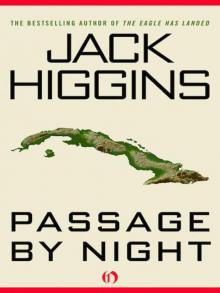 Passage by Night (v5)
Passage by Night (v5)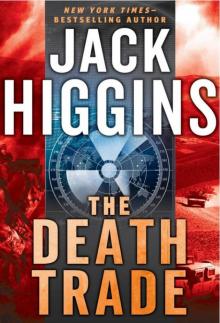 The Death Trade sd-20
The Death Trade sd-20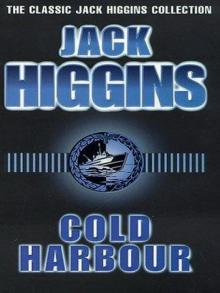 Cold Harbour
Cold Harbour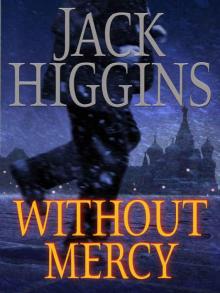 Without Mercy
Without Mercy Solo (Aka the Cretan Lover)(1980)
Solo (Aka the Cretan Lover)(1980)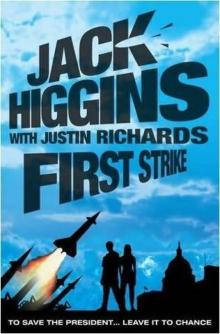 First Strike
First Strike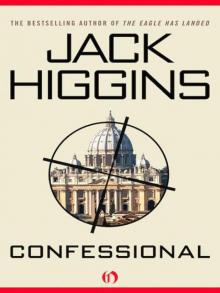 Confessional - Devlin 03 (v5)
Confessional - Devlin 03 (v5)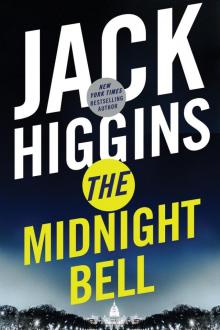 The Midnight Bell
The Midnight Bell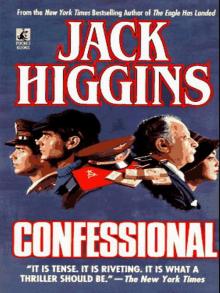 Confessional
Confessional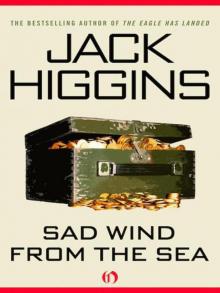 Sad Wind from the Sea (v5)
Sad Wind from the Sea (v5)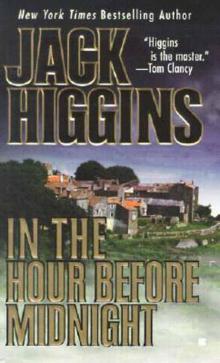 In The Hour Before Midnight aka The Sicilian Heritage
In The Hour Before Midnight aka The Sicilian Heritage Wrath of the Lion
Wrath of the Lion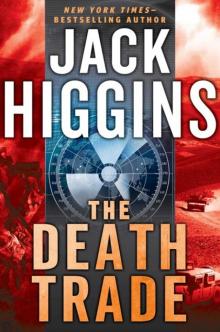 SDillon 20 - The Death Trade
SDillon 20 - The Death Trade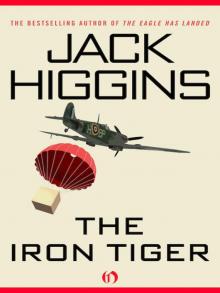 the Iron Tiger (1974)
the Iron Tiger (1974)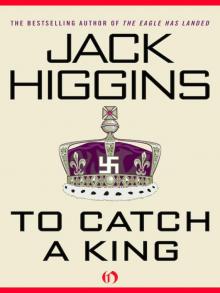 To Catch a King
To Catch a King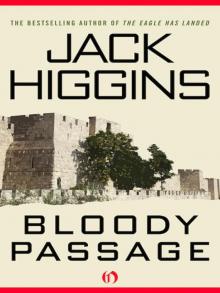 Bloody Passage (1999)
Bloody Passage (1999)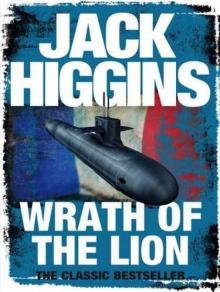 Wrath of the Lion sd-8
Wrath of the Lion sd-8 Sharp Shot
Sharp Shot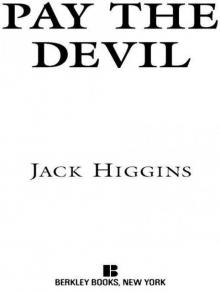 Pay the Devil (v5)
Pay the Devil (v5) A Devil Is Waiting
A Devil Is Waiting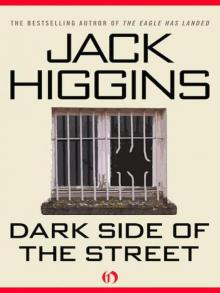 Dark Side of the Street - Simon Vaughn 01 (v5)
Dark Side of the Street - Simon Vaughn 01 (v5)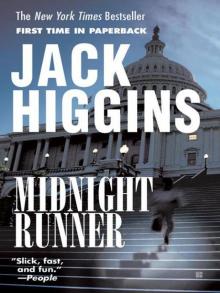 Midnight Runner - Sean Dillon 10
Midnight Runner - Sean Dillon 10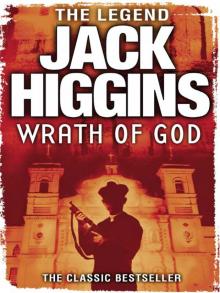 Wrath of God
Wrath of God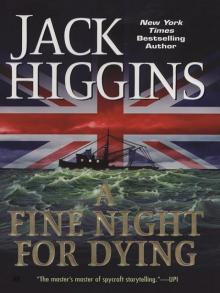 A Fine Night for Dying
A Fine Night for Dying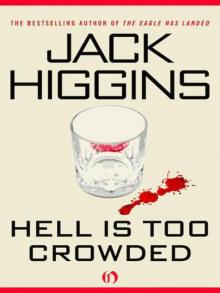 Hell Is Too Crowded v5)
Hell Is Too Crowded v5)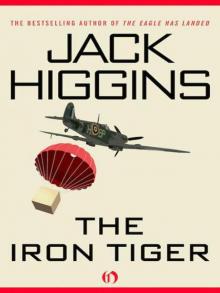 the Iron Tiger (v5)
the Iron Tiger (v5)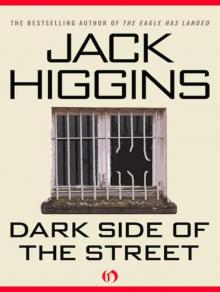 Dark Side of the Street pc-5
Dark Side of the Street pc-5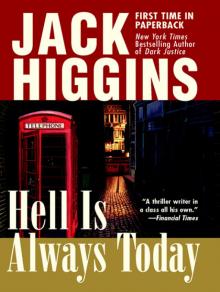 Hell Is Always Today
Hell Is Always Today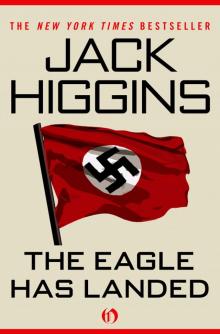 Eagle Has Landed
Eagle Has Landed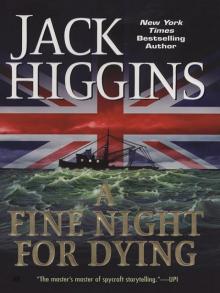 A Fine Night for Dying pc-6
A Fine Night for Dying pc-6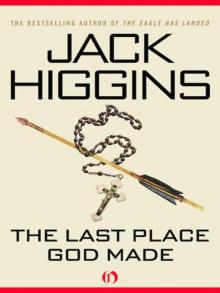 the Last Place God Made (v5)
the Last Place God Made (v5)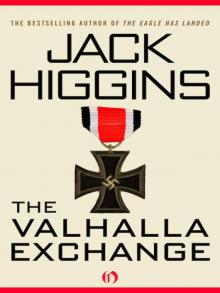 the Valhalla Exchange (1976)
the Valhalla Exchange (1976)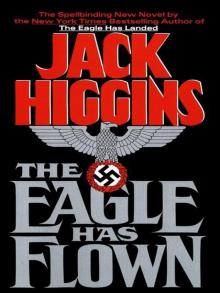 The Eagle Has Flown
The Eagle Has Flown Sure Fire
Sure Fire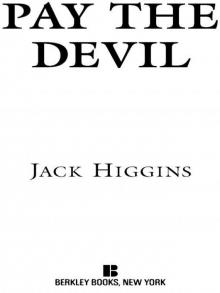 Pay the Devil (1999)
Pay the Devil (1999) Memoirs of a Dance Hall Romeo
Memoirs of a Dance Hall Romeo![a Prayer for the Dying (1974)[1] Read online](http://i1.bookreadfree.com/i1/04/02/a_prayer_for_the_dying_19741_preview.jpg) a Prayer for the Dying (1974)[1]
a Prayer for the Dying (1974)[1]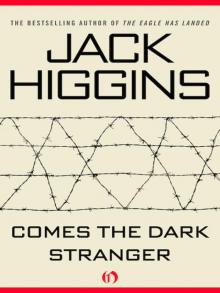 Comes the Dark Stranger
Comes the Dark Stranger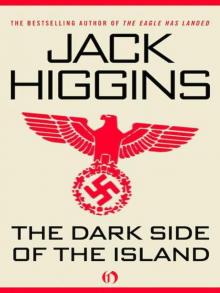 Dark Side Of the Island (v5)
Dark Side Of the Island (v5)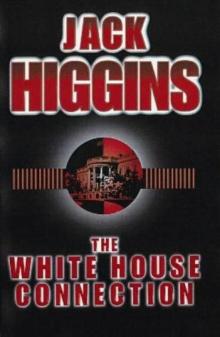 The White House Connection sd-7
The White House Connection sd-7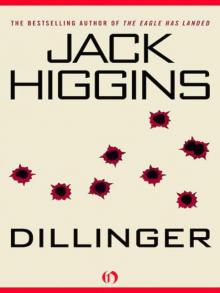 Dillinger (v5)
Dillinger (v5) Eye of the Storm
Eye of the Storm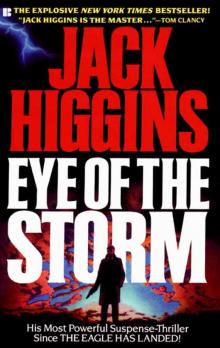 Eye Of The Storm aka Midnight Man
Eye Of The Storm aka Midnight Man A Darker Place
A Darker Place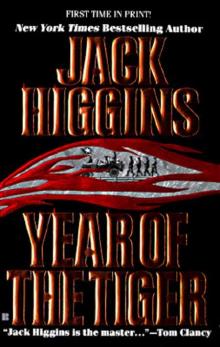 Year Of The Tiger
Year Of The Tiger Death Run
Death Run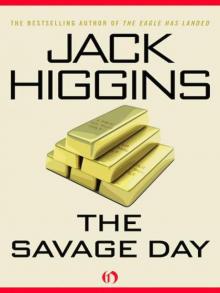 the Savage Day - Simon Vaughn 02 (v5)
the Savage Day - Simon Vaughn 02 (v5)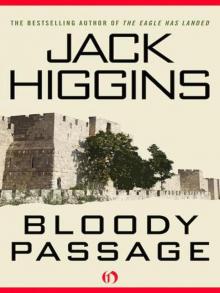 Bloody Passage (v5)
Bloody Passage (v5)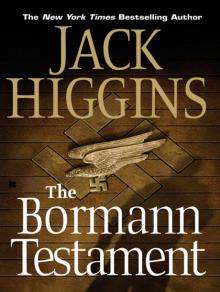 The Bormann Testament
The Bormann Testament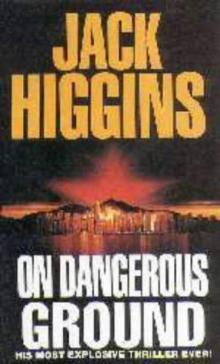 On dangerous ground sd-3
On dangerous ground sd-3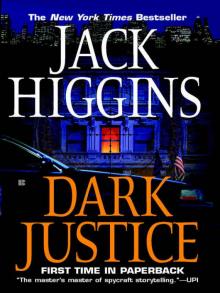 Dark Justice
Dark Justice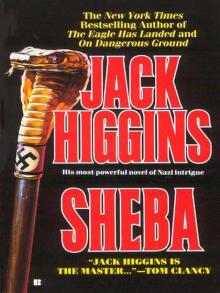 Sheba
Sheba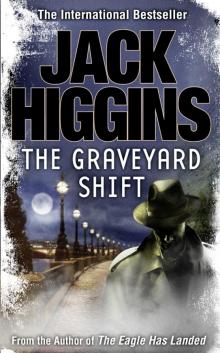 The Graveyard Shift
The Graveyard Shift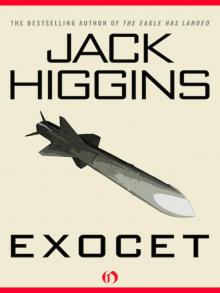 Exocet (1983)
Exocet (1983) The Wolf at the Door
The Wolf at the Door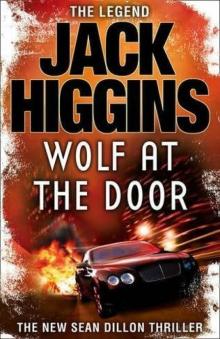 The wolf at the door sd-17
The wolf at the door sd-17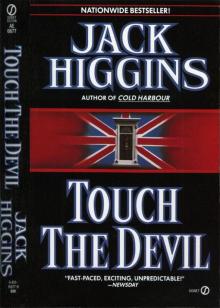 Touch The Devil
Touch The Devil The President’s Daughter
The President’s Daughter A Prayer for the Dying (v5)
A Prayer for the Dying (v5)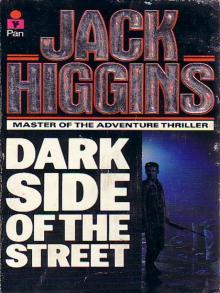 Dark Side Of The Street
Dark Side Of The Street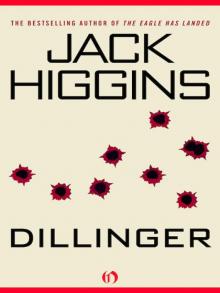 Dillinger (1983)
Dillinger (1983)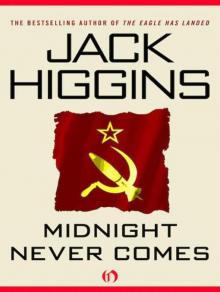 Midnight Never Comes pc-4
Midnight Never Comes pc-4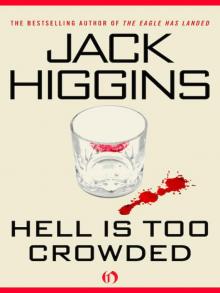 Hell Is Too Crowded (1991)
Hell Is Too Crowded (1991)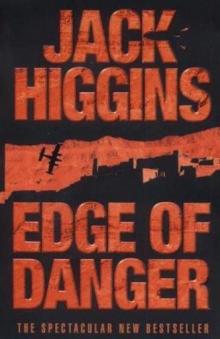 Edge of Danger sd-9
Edge of Danger sd-9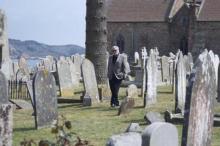 The Thousand Faces of Night (v5)
The Thousand Faces of Night (v5)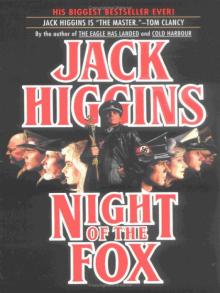 Night Of The Fox
Night Of The Fox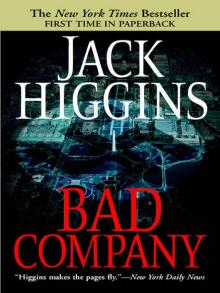 Bad Company
Bad Company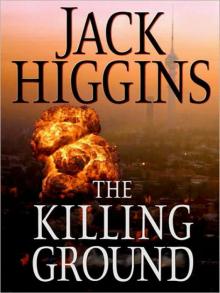 The Killing Ground
The Killing Ground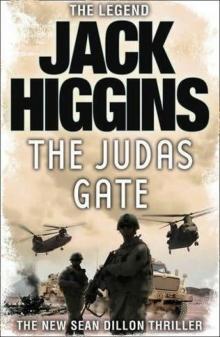 The Judas gate sd-18
The Judas gate sd-18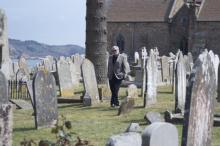 The Thousand Faces of Night (1961)
The Thousand Faces of Night (1961) Solo (Aka the Cretan Lover) (v5)
Solo (Aka the Cretan Lover) (v5)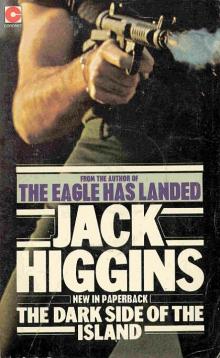 The Dark Side Of The Island
The Dark Side Of The Island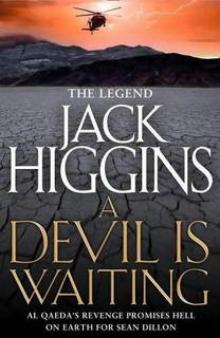 A Devil is vaiting sd-19
A Devil is vaiting sd-19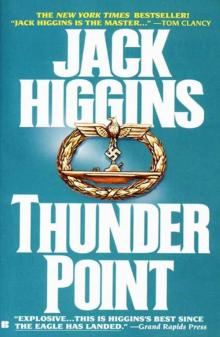 Thunder Point
Thunder Point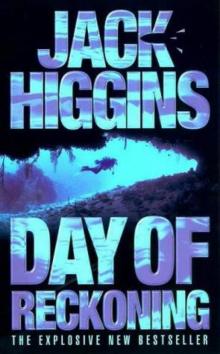 Day of Reckoning sd-8
Day of Reckoning sd-8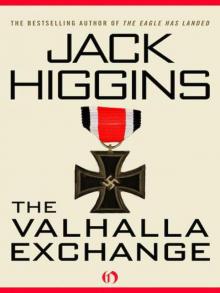 the Valhalla Exchange (v5)
the Valhalla Exchange (v5)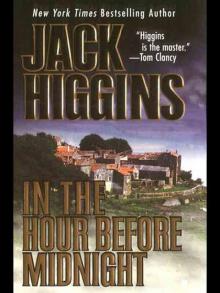 In the Hour Before Midnight
In the Hour Before Midnight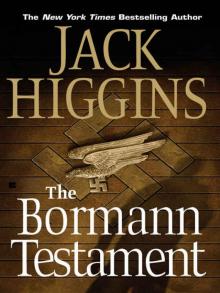 The Bormann Testament (The Testament of Caspar Schultz)
The Bormann Testament (The Testament of Caspar Schultz) The Judas Gate
The Judas Gate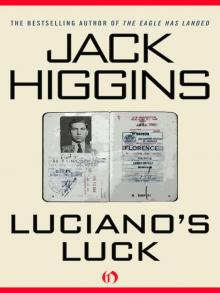 Luciano's Luck
Luciano's Luck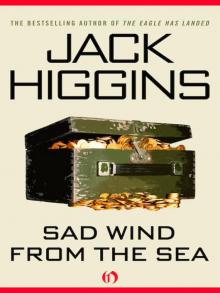 Sad Wind from the Sea (1959)
Sad Wind from the Sea (1959)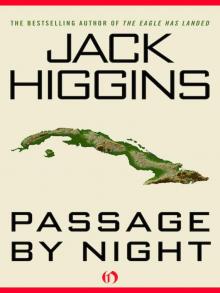 Passage by Night (1987)
Passage by Night (1987)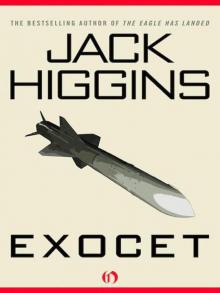 Exocet (v5)
Exocet (v5)